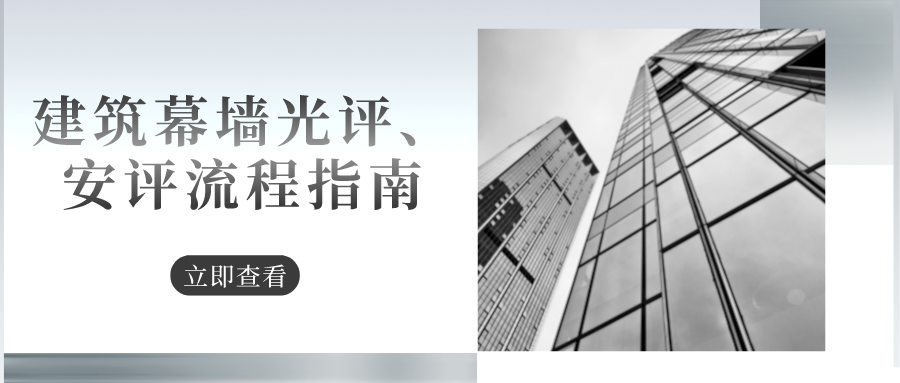FORCITIS | General Question Answer of Building Skin
Building curtain wall and lighting are the core links of building skin, which can directly show the quality of building skin. In the design and construction process of building skin, Forcitis's consultant engineers, for most of the problems often encountered in the building skin, compiled a 'Common technical Q&A on quality control of building skin', including common curtain wall, lighting, project management, cost answers to common questions. It is hoped that this technical question and answer summary can give some help to building developers, architects and building skin engineering consultants.
If you have any questions in the process of reading, welcome to discuss and communicate with us.
Q&A excerpt
(一)The lobby glass of commercial primary and secondary entrances and exits does not use hollow glass. Does the use of laminated glass or monolithic glass meet the requirements of drawing review and acceptance requirements?
It is possible according to the specification.
(1)Article 3.3.7 of 'Design Standard for Energy Efficiency of Public Buildings' GB50189-2015: 'When the full glass curtain wall is used in the entrance hall of public buildings, the area of non-hollow glass in the full glass curtain wall should not exceed 15% of the light transmission area of the same facade (doors, windows and glass curtain wall), and the average heat transfer coefficient should be weighted according to the light transmission area of the same facade (including the area of the full glass curtain wall).'
(2)In the project, it is recommended that the building design institute weigh the calculation in the energy-saving report: the lobby position is calculated according to the parameters of non-hollow glass.
(3)The specific requirements of each region are different: Article 6.1.9 of Shanghai 'Technical code for building curtain wall' DGJ08-56-2012 stipulates that 'when the first floor of the building does need to use single-layer glass, the area of single-layer glass should not be greater than 15% of the area facing the transparent curtain wall, and the heat transfer coefficient facing the transparent curtain wall should meet the requirements of thermal design.'
(二)If the height of stone curtain wall is more than 150m, should experts demonstrate it everywhere? Are there any differences in reinforcement measures?
JGJ133-2001 'Technical code for metal and stone curtain walls engineering' is only applicable to 'stone curtain wall engineering of civil buildings with a building height of not more than 100m and a fortification intensity of not more than 8 degrees'. For more than 100m stone curtain wall whether need expert demonstration should depend on the local authorities, the drawing unit or the owner's request. But the premise of design is safety.
Local regulation:
(1) Tianjin 'Technical code for building curtain wall engineering' DB29-221-2013 is applicable to the granite stone curtain wall project with a building height of not more than 150m in Tianjin, and the non-granite stone curtain wall project with a building height of not more than 100m.
Article 3.6.5: 'When the height of the curtain wall exceeds 100m, the average value frm of the flexural strength test of the granite panel should not be less than 12.0N/mm2, and the standard value frkb of the flexural strength should not be less than 10.0N/mm2.'
Article 3.6.7: 'The effective thickness of the granite panel with a height of more than 100m should not be less than 30mm.'
Article 3.6.8: 'Stone panel should adopt the form of back net. Back net form or other anti-shedding and anti-brittle crack measures should be taken when stone ceiling or more than 100m building curtain wall adopts stone as panel.'
(2) Shanghai 'Technical code for building curtain wall' DGJ08-56-2012 is suitable for 'curtain wall engineering of granite stone with a height of not more than 120m and other panel materials with a height of not more than 80m in Shanghai'.
Article 10.4.7: 'When the horizontal suspension, inclined hanging or installation height exceeds 80m, the connection and support of the plate should be strengthened. The stone panel of horizontal suspension, inclined hanging and high-rise building should have reliable measures to prevent stone fragmentation and falling.'
(3) Hangzhou 'Building Curtain Wall Safety Technical Requirements':
Article 3.5: 'Stone curtain walls with a height of more than 100 meters should be connected by back bolts.'











